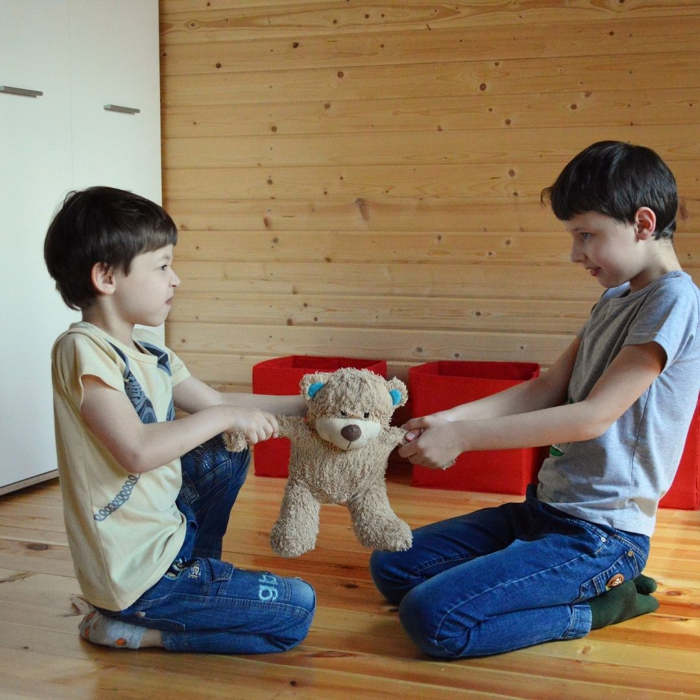
How does a child's opposition manifest itself?
A child's opposition can manifest itself in different ways. If the child rolls around on the floor, answers all your questions with "no" and cries without being able to explain what he or she is feeling, then he or she is probably having an oppositional "crisis". These signs show that he is gradually discovering his individuality. He is torn between the desire to do things by himself and the need to be helped by his parents. This contradictory state can destabilise parents who, despite their efforts, fail to understand what the child really wants.
By discovering that he is independent and has his own desires and emotions, the child seeks to know his limits but also yours. He is torn between different feelings: to leave or to stay, to want or to refuse, etc. It is therefore difficult for parents to help them and keep them happy.
Sometimes it only takes a few minutes for him to trick his parents and get what he wants. By creating a crisis, he knows that it can be a way to get what he wants, it is a test that he makes the adults around him pass. Moreover, his fits do not have the same duration and intensity depending on the people involved.
But these seizures can also, quite simply, reflect the child's state of stress and fatigue. If the child feels bad, tired, hungry or isolated and misunderstood, he or she may resort to crying and screaming to get attention and ask for help.
Where do these tantrums come from?
Faced with dilemmas that he cannot resolve, his anger and frustration take over and lead to rather violent outbursts. By venting in this way, the child is venting the rage that he or she can no longer control and cannot yet express verbally. Sometimes it is simply to obtain a treat or a toy that he will start a tantrum. By entering into a power struggle with the adult of reference, he hopes to obtain the object of his desire or to be heard.
How do I deal with my child's tantrums?
Giving in is an admission of weakness that the child will soon use regularly. You must therefore be firm, even in public when the situation seems shameful and/or insoluble and even if the place is not ideal for isolating him. This is also a necessary limit. Indeed, in order to structure himself, the child needs to come up against the firmness of his parents and their limits. They need to get to know frustration and integrate it into the feelings they will have to deal with in their future lives. Many parents do not dare to set limits for fear of "hurting" their child, but in order to be happy, the child needs to feel secure in a framework where rules are imposed.
However, you need to give them space and support them in their quest for independence. For example, let him take the initiative on a daily basis, show him what to do, and encourage him when it is his turn.
Finally, try to divert his attention if you feel that a crisis is imminent. Offer to play or sing, for example. This will make it easier to relieve the pressure and avoid a major crisis. And to prevent the situation from getting too heated, never shout at him. Instead, stay calm and talk to him. When faced with a soothing tone of voice from a parent, the child will find it easier to calm down and listen carefully to what you have to say.
At what age do these tantrums disappear?
As the child becomes more able to speak and express him/herself, these tantrums tend to disappear on their own. It is therefore around the age of 3 that the child succeeds in speaking to defuse its discomfort. However, the crying and screaming do not disappear. They are simply reduced in duration and intensity and now make way for a possible discussion and verbalisation of their emotions.
With experience, parents anticipate risk situations with regard to their child's tantrums. It is therefore much easier for them to limit the damage and prevent it. But if the child does have a tantrum, don't panic. Stay firm and don't give in to them, they are just continuing their normal development by finding out what they are and are not allowed to do.
You may also like to read / También te puede interesar leer
- What is narcissistic personality disorder?
- Emotional dependence and lack of self-confidence
- What is narcissistic personality disorder?
- How to become a good leader?
- Left-handed people are exceptional: Science says so
- What is the difference between the novel and the short story?
- Interesting Conversation Topics: Questions to Ask
- How to improve your concentration when working or studying

